Here is a list of technology events happening in Pune over the next few days. To be informed of these events in advance, you should subscribe to get the PuneTech calendar event announcements by email. Click here to subscribe.
- [Fri] (Paid) Working with the Amazon Cloud Program – Developer Edition [Revised Edition] 2-day workshop
- [Sat] (Paid) 1-Day Workshop: Brand Management for Entrepreneurs
- [Sat] >@PuneUserGroup and @CSIPune event: iOS and Android Development using C# with Xamarin
- [Sun] Arduino Girls: Arduino event just for girls
- [Sun] PHP Event: Object Oriented Programming in PHP
(Paid) Working with the Amazon Cloud Program – Developer Edition [Revised Edition] 2-day workshop
- Date: 13-14 Jun
- Location: Pune – Contact Organizer for details
This 2-day program from Cralina takes one through all the fundamentals of
cloud computing as well as Amazon Web Services (AWS) cloud and the
infrastructure services which comprise AWS through a delightful mix of
lectures, demos and hands-on exercises. By the end of the program one will
have enough hands-on experience with AWS to be able to deploy, configure and
secure one’s own scalable web application(s) on the Amazon cloud. This
program also covers the Amazon API’s useful for developers. The revised
edition of the program covers 70% of IBM Cloud Computing Infrastructure
Architect Certification and the program material covers 100%.
Target Audience:
- Engineers/Leads/Managers who would like to get a jump start on programming
using Amazon Web Services. - Engineers/Leads/Managers who intend to deploy applications or services on
the cloud sometime in future - Software developers who wish to integrate Amazon cloud services into their
own software - Industry professionals who would like to get an in-depth understanding of
cloud computing using Amazon Web Services
About Cralina
Cralina provides consulting services and technology trainings in niche areas
to leading software companies and professionals with an objective to highly
improve productivity and skill levels. Cralina’s consultants have a strong
background working in a fast paced product development environment in Fortune
500 companies as well as successful startups.
Fees and Registration
This is a paid event. Check the event website:
http://www.cralina.com/upcoming-programs#Amazon for details.
Please double-check the date/time/venue of the event at the above link. We try to ensure that PuneTech calendar listings are accurate, but occasional errors creep in.
(Paid) 1-Day Workshop: Brand Management for Entrepreneurs
- Date: Sat, 14 Jun 9:00am – 5:00pm
- Location: Training Room, Venture Center, NCL Innovation Park, Pashan Road
For Whom: Entrepreneurs with product/ service offerings keen on creating a brand, Brand Managers, Brand Consultants, Management Students, Law Faculty and Students
Agenda
- Why brands matter and How brands create value
- Strategic branding to your advantage
- Advertising and promoting your product/service offering with the help of your brand
- Knowledge of designing your brand
- Measuring brand value
Speakers:
- Ms. Melamie Kini : MBA from SIBM, MS Advertising, NewHouse School of Public Communication Currently a Partner at Positron Consulting Services
- Ms.Sonali Brahma: Independent Brand strategist, Creative Director, Writer and corporate trainer, Branding strategy and communication
- Mr.Anant Govande: Chartered Accountant, Cost Accountant and Company Secretary
- Ms. Nazima Munshi: Assistant Professor at IIPS, Mumbai (LL.B, M.Phil)
- Mr.Manoj Kothari: Co-founder, director and principal strategist at Onio Design Pvt. Ltd
Fees and Registration
This is a paid event and fees range from Rs. 700 for students all the way up to Rs. 2000 for employees of large companies. For more details and registration information, see: http://www.ipface.org/workshops.php
About Venture Center
Entrepreneurship Development Center (Venture Center) – a CSIR initiative – is a not-for-profit company hosted by the National Chemical Laboratory, Pune. Venture Center strives to nucleate and nurture technology and knowledge-based enterprises by leveraging the scientific and engineering competencies of the institutions in the Pune region in India. The Venture Center is a technology business incubator specializing in technology enterprises offering products and services exploiting scientific expertise in the areas of materials, chemicals and biological sciences & engineering.
Fees and Registration
This workshop costs Rs 1500. Please register here: http://em.explara.com/event/aime-pune
For more information, contact: Miss. Lipika Biswas, Venture Center, Phone: +91-20-20250934/64011024; Email: eventsdesk@venturecenter.co.in
See also: http://www.ipface.org/workshops.php
Please double-check the date/time/venue of the event at the above link. We try to ensure that PuneTech calendar listings are accurate, but occasional errors creep in.
>@PuneUserGroup and @CSIPune event: iOS and Android Development using C# with Xamarin
- Date: Sat, 14 Jun 10:00am – 2:00pm
- Location: CSI Office, Prabhat House, Damle Path, Off Law College Road, Behind INDSEARCH
Come celebrate Xamarin 3 with cake and food, and learning how to create iOS and Android applications in C#. Xamarin 3 was just announced including some amazing new features and enhancements such as the brand new iOS Designer, Xamarin.Forms, and support for Shared Projects. This month we will deep dive into iOS and Android Development in C# with Xamarin and all of the latest features that were just released. There will be something for everyone in this content packed meetup no matter if you are new or have been developing with Xamarin for some time. Here are just a few topics that we will cover.
Agenda
- Sharing More Code (10:00-11:00)
- File and project linking are no fun, and that is where PCLs and Shared Code projects come in to alleviate all of this pain. Full support is now built right into Xamarin Studio for these projects and a brand new NuGet package manager makes managing apps easy.
- iOS Designer & Xamarin.Forms (11:00 – 12:00)
- We already share all of our business logic, but what about the user interface? That is where Xamarin.Forms API comes in. We will see how to create your first Xamarin.Forms app to share all of your native user interface and business logic between iOS, Android, and Windows Phone!
- Introduction to MVVM Light (12:00 – 01:00)
- Learn MVVM and advantages of it to build cross platform applications. Learn how to use MVVM Light to implement MVVM pattern and use blendebility, testability, extensibility in your projects
- Pizaa & Networking (01:00 – 02:00)
About CSI Pune
Computer Society of India (CSI) is one of the oldest computer science user groups in the country, and CSI Pune is has been one of the most active chapters in the country by virtue of its numerous activities and contributions in various fields. It has helped the people in implementing computerized systems in various sectors such as Industry, Banking commercial, Public sector Research and Development establishments and Government departments. With several programs and a strong IT professional network, the Pune chapter has been a part of the growth of Pune’s IT industry.
Working at the grass-root level, the chapter has also contributed toward stronger computer education is various ways. With chapters in various colleges in Pune, CSI has a very wide reach amongst the students of computer science too.
About Pune User Group
Pune User Group (aka PUG) is a Pune (India) based not-for-profit organization, an association of professionals and students interested in Microsoft technology who are dedicated and devoted to the noble cause of spreading knowledge. It is a platform for you to share your experiences and educate professionals through the learnt lessons of the best Gurus in IT indutry….because “Knowledge is wealth..” and we “Gain Knowledge by Sharing knowledge…”
Fees and Registration
This event is free and open for anybody to attend. Please register here: https://onedrive.live.com/survey?resid=94C06BE0EDFD7DCB!714&authkey=!AJfrGdBhqS8QpcE
Please double-check the date/time/venue of the event at the above link. We try to ensure that PuneTech calendar listings are accurate, but occasional errors creep in.
Arduino Girls: Arduino event just for girls
- Date: Sun, 15 Jun 10:00am – 5:00pm
- Location: Doo, 402A, Town Square, Above Dorabjees, Airport Road, Viman Nagar
Priya Kuber (https://twitter.com/beachbrake) & Ankit Daftery from Arduino India will be here to conduct the workshop.
Agenda
- Getting Started
- Basic Electronics
- Interfacing and controlling using the Arduino
- Expand your scope
Fees and Registration
This event is free, but is open only to women. Please register here: https://docs.google.com/forms/d/1cuq0LxzPQ94ZxaC3tSE5t-E051qC0vzMTzaq0DrG6BE/viewform
Please double-check the date/time/venue of the event at the above link. We try to ensure that PuneTech calendar listings are accurate, but occasional errors creep in.
PHP Event: Object Oriented Programming in PHP
- Date: Sun, 15 Jun 11:00am – 12:30pm
- Location: Sacred World Towers, Jagtap Chowk, Wanowrie
Lets meetup on PHP OOPs various topics like –
- Inheritance
- SPL
- Magic Methods
- Autoloading
- Namespaces
This will be an open discussion to learn by sharing each other experience and knowledge.
Fees and Registration
This event is free and open for anybody to attend. Please register here: http://www.meetup.com/PHP-Jagruti-Meetup-Group/events/187851242/
Please double-check the date/time/venue of the event at the above link. We try to ensure that PuneTech calendar listings are accurate, but occasional errors creep in.
### About the PuneTech Calendar
**Get event announcements by email.** [Click here](http://www.feedburner.com/fb/a/emailverifySubmit?feedId=2324058) to subscribe (free) to the [PuneTech Calendar](http://punetech.com/calendar) of events, or [follow @punetech on twitter](http://twitter.com/punetech)


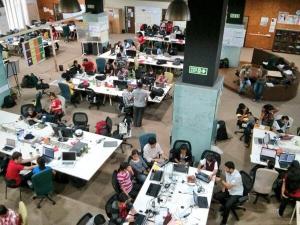
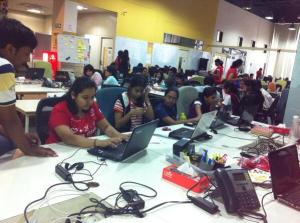
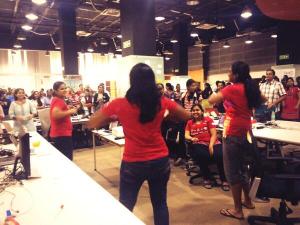
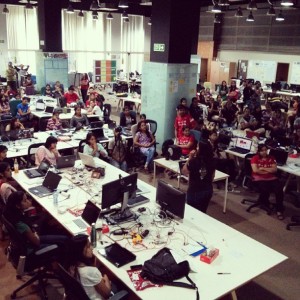
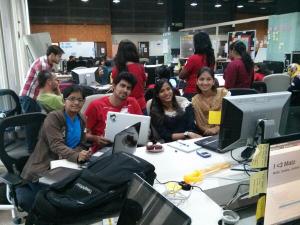
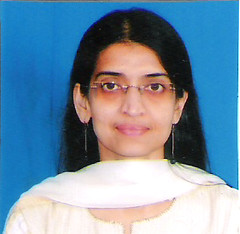
![Reblog this post [with Zemanta]](http://img.zemanta.com/reblog_b.png?x-id=dcc84d57-62be-4f8c-91f4-0198c4c7a102)
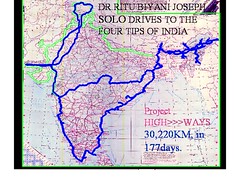

![Reblog this post [with Zemanta]](http://img.zemanta.com/reblog_b.png?x-id=f47e924e-7a87-4896-ad9f-65ac9bc7557f)
